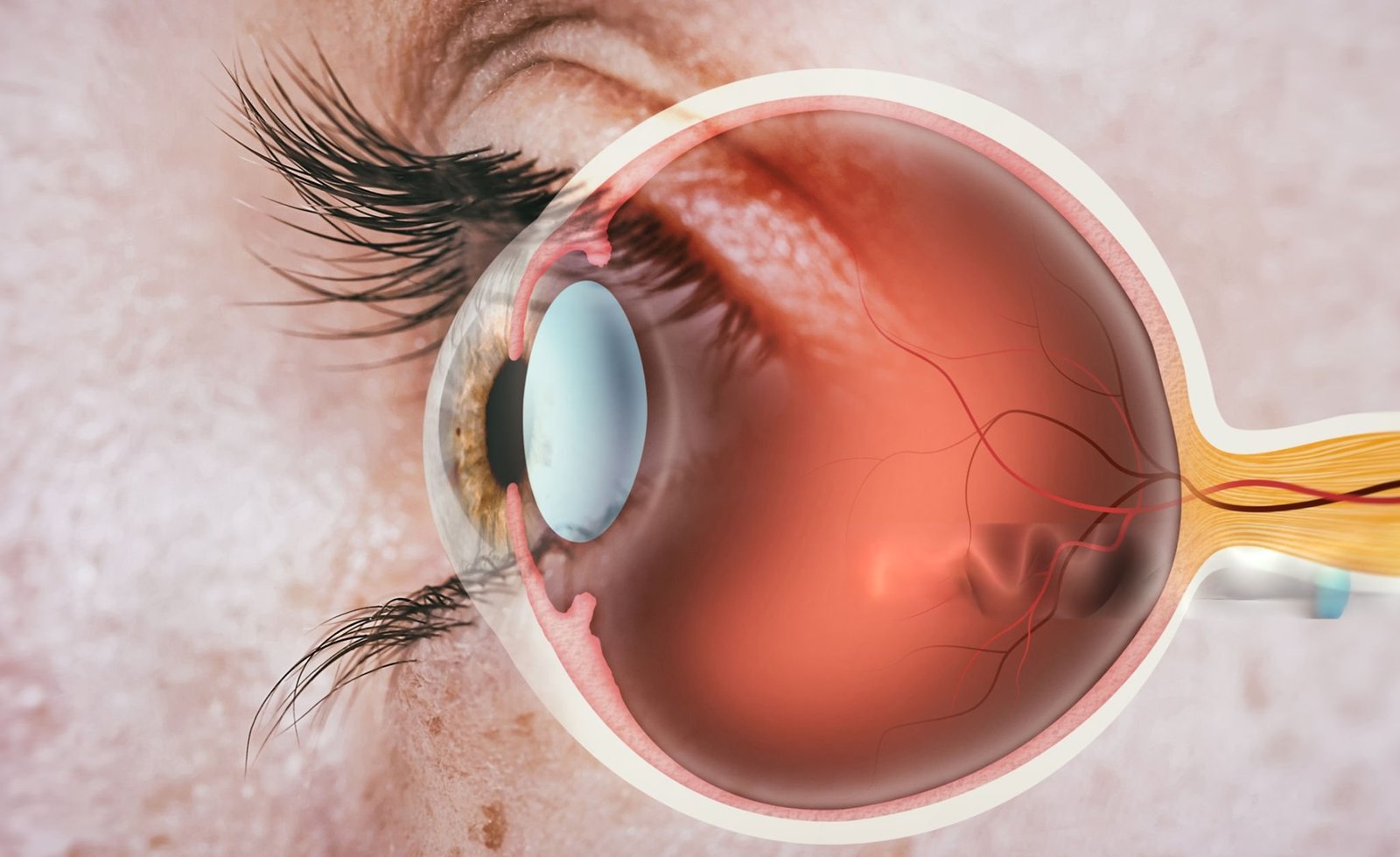What is Retina Surgery?
The retina is a delicate, light-sensitive tissue at the back of your eye responsible for vision. When it gets damaged, such as through a tear or detachment, vision can be seriously threatened. Retina surgery is a specialized procedure aimed at repairing these issues and preserving or restoring clear sight.

Retinal Tear vs. Retinal Detachment Surgery
A retinal tear is often an early stage where the retina has a small break but hasn’t completely separated from the underlying tissue. If left untreated, it may lead to retinal detachment, a more serious condition where the retina pulls away from its normal position, causing severe vision loss.
While both require surgical intervention, the urgency, type of procedure, and post-op care differ. Early diagnosis and timely treatment of retinal tears can prevent the need for more invasive detachment surgeries.
Surgeries for Retinal Tears
For retinal tears, the following treatments are commonly used:
- Laser Photocoagulation: A laser seals the retinal tear by creating small burns around it to form scar tissue that prevents fluid leakage under the retina
- Cryopexy (Freezing treatment): A freezing probe is applied to the eye’s outer surface to seal the tear by forming a strong scar.
These are usually outpatient procedures, often performed under local anesthesia.
Surgeries for Retinal Detachment
Retinal detachment requires more complex surgery, such as:
- Pneumatic Retinopexy: A gas bubble is injected into the eye to push the retina back into place, followed by laser treatment or cryotherapy to seal the tear.
- Scleral Buckling: A silicone band is placed around the eye to relieve the pulling forces and allow the retina to reattach.
Vitrectomy: The vitreous gel is removed and replaced with a gas bubble, silicone oil, or saline, depending on the severity of the condition.
Preparing for Retina Surgery
A detailed eye examination, diagnostic imaging (OCT or ultrasound), and a thorough discussion of the risks and benefits will be done before the procedure. You may need to adjust medications or arrange for someone to accompany you post-surgery.

Recovery and Follow-Up
Recovery varies depending on the type of surgery. You may experience mild discomfort, blurred vision, or need to maintain specific head positioning. Consistent follow-ups are essential to monitor healing and ensure the best visual outcome.
Early intervention is key to preserving sight. If you notice flashes, floaters, or sudden vision changes, consult us immediately.
Frequently Asked Questions (FAQS)
1. Is retina surgery painful?
Retina surgery is usually performed under local or general anesthesia, so you won’t feel pain during the procedure. Some mild discomfort or soreness may be experienced after surgery, which is easily manageable with prescribed medications.
2. How long does it take to recover from retina surgery?
Recovery time depends on the type of surgery performed. Most patients resume routine activities within a few weeks, but complete visual recovery may take several months. You’ll need to follow specific post-op instructions for the best results.
3. Will my vision return to normal after retina surgery?
If the surgery is done early, especially before the central retina (macula) detaches, there’s a higher chance of preserving or restoring good vision. However, some vision loss may be permanent if the detachment was severe or long-standing.
4. Are there any restrictions after retina surgery?
Yes. You may need to avoid strenuous activities, heavy lifting, or air travel, especially if a gas bubble was used. Head positioning is also crucial in some cases. Your doctor will guide you based on your specific procedure.
5. How do I know if I need retina surgery?
If you notice sudden floaters, flashes of light, or a shadow in your vision, it could be a sign of a retinal issue. A comprehensive eye exam will determine if surgery is needed. Early consultation is key to preserving vision.
